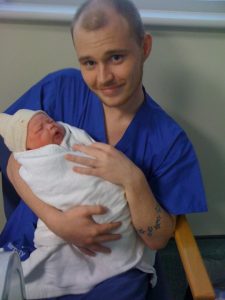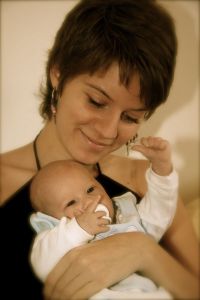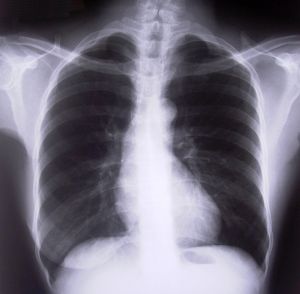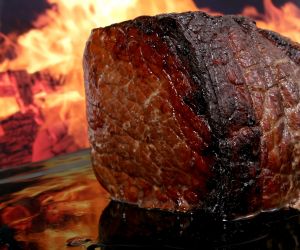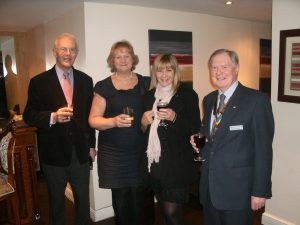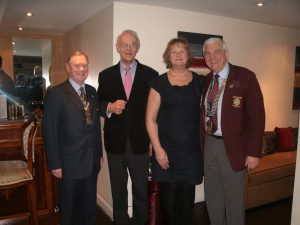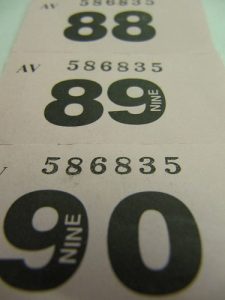Welcome to the February edition of the makeabigdifference newsletter; Young Heroes’ one stop shop for all the latest charity news and events, fundraising and cancer updates.
In this issue we share the latest installment of ‘Cancer Controversies’; Do medical X-rays cause cancer? Does eating well done meat really cause bladder cancer? Does breastfeeding lower my risk of cancer? And is there any truth in ‘cancer clusters’?
You can also read about the new leukemia vaccine (currently in trials) which may save thousands upon thousands of lives.
We welcome back columnist Katie Brooman who this month talks about her internet blog and how it helped her mentally cope through the tough times of her own cancer journey.
We all like bargains, so why not check out our new monthly article which shares the latest, hot off the press offers from Easyfindraising.com; the online shopping experience that allows you to surf the high street shops whilst raising money for Young Heroes!
Also in this edition we invite Young Heroes’ Health Support Coordinators Bev and Rob Law to speak about the Warwick Avon Rotary Club event they recently attended. We also have the usual monthly articles for you to enjoy and share some wonderful news about one of our young heroes.
Until next time,
Kim Tetlaw
Editor
Congratulations
We would like to congratulate young hero Chris Taylor on the birth of his baby boy. Chris and fiancée Sarah welcomed their new son Jack into the world earlier this month.
All the staff and volunteers at Young Heroes wish you and your new family all the very best and once again congratulations.
Latest Cancer News

New leukaemia vaccine enters clinical trials
UK scientists have launched an early clinical trial – phase-II – of a new cancer vaccine designed to help patients with leukemia to fight the disease.
The DNA vaccine, which Cancer Research UK scientists helped to develop, is different from vaccines that help to prevent infectious diseases. Instead it is designed to strengthen the immune system in people who already have cancer, so that it puts up a stronger defence against their disease.
The vaccine stimulates the immune system to mount a response against a gene called WT1, which is switched on in almost all cases of chronic and acute myeloid leukaemia. The treatment helps the immune system to recognise and target the cancer cells.
Researchers plan to enrol up to 180 patients in the two-year trial, which will take place at hospitals in Southampton, London and Exeter.
Participants will receive six doses of the vaccine over a six-month period, followed by booster vaccines if successful.
The vaccine will be delivered using a technique called ‘electroporation’, in which rapid electrical pulses are used to increase the uptake of the vaccine into the body’s cells.
Lead researcher Professor Christian Ottensmeier, professor of experimental cancer medicine at the University of Southampton and a consultant oncologist at Southampton University Hospitals NHS Trust, explained that better treatments for leukaemia are urgently needed. The disease can be difficult to treat and some drugs can cause unpleasant side effects.
He revealed: “We have already demonstrated that this new type of DNA vaccine is safe and can successfully activate the immune systems in patients with cancer of the prostate, bowel and lung.
“We believe it will prove to be beneficial to patients with acute and chronic myeloid leukaemia.”
Sourced from:
http://info.cancerresearchuk.org/news/archive
Thank You
Young Heroes would like to thank Yvonne Hewitt and family for raising a fantastic ?205.00 in aid of our charity. Yvonne raffled an enormous home-made hamper at her sister in laws hair salon in Barnsley. Prizes in the hamper, many of which were donated, included chocolates and alcohol and they held a ‘guess the name’ competition and various other goodies up for grabs.
Thank you once again to all involved and for your continued support.
Katie’s Corner
Shortly after I started my cancer journey I realised there was a massive
lack of positive and real life experiences of people coping through
treatment and the after effects of Osteosarcoma. I just wanted someone to
relate to. I decided to set up my own webpage, mainly for these reasons, but
also it was useful for keeping friends and family up-to-date, instead of
using my very limited energy to repeat the same information.
Writing my blog definitely helped me cope, gave me something to do and kept my brain
active, it was also useful for remembering dates. I also created a chemo
schedule, which always made me happier when I returned home I and could tick
a completed cycle off! I would definitely recommend a young person with
cancer to write a blog; writing down feelings or expressing thoughts in some
way. You never know who it might help in the future! I used the website
www.webs.com to create my blog, which is free and it was very easy to set
up.
You can visit my website at www.freewebs.com/ktlouise85, I hope you
enjoy looking and reading a few of my posts. Thank you for reading and I’ll
see you next month at Katie’s Corner!
Cancer Controversies
Throughout the years there have been many cancer myths floating around.
The question is: Is there any truth to these cancer myths?
Keep reading and learn fact from fiction!
1) Breastfeeding lowers cancer risk
It has been reported that you can lower your risk of developing breast cancer by breastfeeding your baby. And if your baby is a girl, her risk can also be reduced.
Pregnancy before age 30 and breastfeeding reduce a woman’s total number of lifetime menstrual cycles, which is thought to be the reason they help lower your risk. The hormone estrogen fuels 80% of all breast cancers. Since pregnancy and lactation reduce your estrogen levels, your risk is decreased each time you are pregnant and while you are nursing your baby.
Studies show that breastfeeding for one and a half to two years over one’s lifetime will reduce your risk of breast cancer slightly. A study of Chinese women found that their breast cancer incidence dropped by 63% when they breastfed for six years. Though that tends to be longer than most choose to do so, your reduced risk can be determined by the cumulative amount of time you’ve spent breastfeeding over the course of your life.
2) Cancer clusters
When people notice several friends or others living on their street being diagnosed with cancer, it can sometimes feel like these cases are not just a coincidence.
People often worry if these cases have been caused by the same thing. They suspect a cancer cluster.
Cancer cluster occurs when more cases of cancer than expected are diagnosed in a group of people, geographic area or period of time. Most suspected clusters are coincidences that occur by chance. But real and apparent clusters can cause anxiety for people who spot them.
Unfortunately, cancer is a very common disease. In an area with a population of 100,000 people in the UK, there will be on average around 370 new cases of cancer diagnosed per year. And in this same population, about 175 people will die from the disease in a year. Even if these cases occur randomly, there may be, just by coincidence, a few cases that will be clustered in one area. These clusters are not real but a result of a chance association
3) Medical X-rays and cancer
Medical x-rays are a very important tool for diagnosing different illnesses, including cancer. The health risks from x-ray radiation are generally very low and usually outweighed by the benefits of getting the right diagnosis and appropriate treatment.
X-rays are a form of ionising radiation, a high-energy type of radiation that can damage DNA in our cells. This damage has the potential to lead to cancer, but because medical x-rays only use small amounts of radiation, the risks involved are generally low.
We are exposed to radiation from natural sources every day. Radon gas from the earth’s crust contributes the largest amount of natural radiation to most people living in the UK. Cosmic rays from the sun, stars and outer space, natural radiation from the food we eat, the water we drink and the ground we walk on, also contribute to our natural exposure every day.
Medical x-rays just add a small amount of extra radiation on top of this and can bring great benefits to patients, by leading to accurate diagnosis and effective treatment.
4) Well-done meat doubles bladder cancer risk
Eating lots of meat, especially if it is overcooked, increases the risk of bladder cancer, say experts. Frying, grilling and barbecuing until meat is charred can form cancer-causing chemicals, research shows.
In a study, people whose diets included well-done meats were over twice as likely to develop bladder cancer than those who preferred meats rare.
The research findings, based on over 1,700, people were presented at a US cancer research conference. The University of Texas investigators found the risk was highest for those who ate well-done red meat such as steaks, pork chops and bacon.
But even chicken and fish, when fried, significantly raised the odds of cancer. Three major types of the cancer-causing chemicals, collectively called heterocyclic amines (HCAs), raised cancer risk by more than two-and-a-half.
In the study, which took place over 12 years, the researchers analysed the DNA of all the participants to look for any differences in the way individuals metabolised the cooked meat.
Having particular genes made some people almost five times as likely to develop bladder cancer when they ate a lot of red meat.
PLEASE NOTE: All information provided has been sourced from outside of Impact Young Heroes therefore the author or Young Heroes assumes no responsibility as a result of this article.
Sourced from:
http://info.cancerresearchuk.org/healthyliving
http://news.bbc.co.uk/1/hi/health
WARWICK AND WARWICK AVON ROTARY EVENT
By Bev & Rob Law
Attending Rotary events are always a great pleasure, and we have looked forward for considerable time to visiting the Warwick Avon Rotary Club to talk to them about the work of Impact Young Heroes. We were delighted too that the Warwick Rotary Club had also been invited
On the 25th January John Morris Club President, welcomed us to the Club dinner at the Ramada Hotel Chesford Bridge. We were fortunate to have the company of our dear friends District Governor David Butler and his wife Sue.
Following an enjoyable meal, we were invited to make our presentation. With the use of power point, we were able to share the history of the charity, and the many experiences of the Young Heroes we have been able to support and care for over the last 4 years. They specifically ask us to highlight the effects of cancer in this age group. This includes their experiences with disrupted education, obtaining mortgages, insurance, body image, the loss of peer group friends resulting in social isolation, and in some cases homelessness. Family relationships are put under strain and sometimes result in marital breakdown. The financial effects on the family and young person are too numerous to recount.
Cancer is a very emotive subject and many of the members were clearly moved by our experiences. Following the talk, we were able to speak to individual members to answer questions and share ideas how to move forward. The feedback we have received demonstrated that many of the members were enlightened about the consequences of a life threatening illness in the 13 to 25 year age group, and felt that they would like to share this with other Rotarians at District level in order to raise the profile of our work.
We take this opportunity to thank all those present and look forward to continuing our relationship with Rotary in the future.
Make a big difference to Impact Young Heroes when you shop with easyfundraising.
Make a difference to Impact Young Heroes when you shop with easyfundraising. Here’s our round up of the best offers on the site this week so you can even save money too:
*Excludes special offers. Ends: 27/2/11
3.75% donation
Donations increased to 1.5% until 14/2/11
Limited to one per customer per day. See full T&Cs*. Ends: 14/2/11
*Offer excludes special offers. Ends: 18/2/11
Up to 6% donation
*Offer only valid on home delivery orders. Ends: 13/2/11
Up to 2.75% donation
*Terms & Conditions apply, see Boden website for details. Ends: 12/4/11
2.5% donation
Ends: 31/3/11
£2.50 donation, new customers only
*See Hotels.com website for further terms & conditions. Ends: 15/2/11
3.5% donation
Donations increased to 3.5% (was 2.5%) until 28/2/11
Up to 3.5% donation
See Resorthoppa website for T&Cs. Ends: 28/2/11
5% donation
For a limited time only raise £55 for Impact Young Heroes while bagging yourself a pay monthly contact from Vodafone!
Lotteries, Raffles and Tombolas
Photograph By HowardLake
Raffles, lotteries and tombola’s are an easy and exciting way to fundraise. They are appropriate for a wide variety of different events and can be catered to any age group. However all lotteries are regulated by gambling laws and you should check with your local regulatory agency before hand as you may need a license.
A lottery is the formal name for a game of chance whilst a raffle/tombola is generally referred to as a lottery that offers no cash prizes. Lotteries come in different shapes and sizes and are regulated by the Gaming Board. There are, however two types of lottery which you can hold without permission from your local authority or the Gaming Board.
Small Lotteries/Raffles/Tombolas
- This type of lottery can be held at an event so long as it’s not the main attraction or focus of the event. For example, you could have a small lottery at a charity dinner, dance, fete or sports day.
- You can’t sell the tickets in advance, they must be sold on the day of the event and the winner must be announced before the end.
- Cash Prizes aren’t allowed
- Alcohol can only be used as a prize if everyone entering the lottery/raffle/tombola is 18 years of age or over.
- The rules also state that the maximum you can spend on prizes is £250, however this figure doesn’t include donated gifts
- There are no restrictions on how many tickets you can sell and at what price so long as you sell them at the event only.
- The money you make from your lottery/raffle/tombola cannot be used for personal gain; it should be used to cover overheads of running the event and for sponsorship to Young Heroes.
- This type of lottery must be limited to members of a group, or those who live or work in the same premises. For example, an office lottery.
- The price of the tickets must remain the same for everyone entering but there is no restriction on the price you can charge for each ticket.
- You can’t advertise outside the place of sale such as the social club or office premises
- Unlike small lotteries, prizes for private lotteries can include cash.
- The money raised from the lottery must go on prizes or fundraising, you can also deduct money to cover printing costs for tickets.
Private Lotteries/Raffles/Tombolas
If you are planning a fundraiser and want to sell tickets in advance then you will need to contact your local authority. If you are granted a license you will be able to promote and sell tickets prior to the event taking place, there are however, certain restrictions in place.
- The lottery/raffle/tombola can’t be run for private gain it must be for a charitable cause.
- The total value of tickets must be less than £20,000. If it totals more than £20,000 than you will need to register your fundraising event with the Gaming board.
- Each lottery/raffle/tombola ticket must cost no more than £1.00
- Tickets can only be sold to people 16 years old and over and must not be sold in the street or in any kind of gambling establishment.
Despite the rules and regulations organising a lottery, raffle or tombola is extremely easy and can be very beneficial in helping you to raise funds for Young Heroes. They’re easy to set up and get people to buy into and can work with little investment, especially if you get people to donate prizes.

